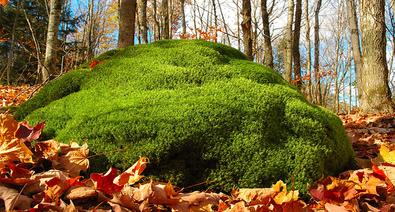The mosses and moss alies belong to a single division the Bryophyta.
This division includes the most primitive of the green land plants. Bryophytes are structurally simple in both morphology and anatomy.
Bryophytes are the most simplest and most primitive land plants
Name bryophyte is derived from two words; ‘Bryon’ = moss; ‘phyton’ = plant. At present the phylum Bryophyta includes ~ 960 genera and ~ 24000 species.
Habitat:
They are cosmopolitan in distribution
Bryophytes are quite uncommon in marine environments
Bryophytes are terrestrial plants but require water at every stages in their life cycle
They grow usually in moist and shady places
They fail to complete its life cycle in the absence of water
Few bryophytes are truly aquatic and underwater forms(example Riccia fluitans)
Peat moss (Sphagnum moss) grown in bogs and marshy areas
Porella is an epiphytic bryophyte that grow on tree trunks
Radulla protensa is an epiphyllous bryophyte grow on the surface of leaves
Tortula desortorum is a xerophytic bryophyte growing in deserts
Bryophytes are fundamentally land plants
The land adaptations of bryophytes are:
Possess root like rhizoids to absorb water from soil
Free surface of epidermis is coated with water proof waxy coating(Cuticle) to prevent water lose and protect against desiccation
They possess stomata like structures for gaseous exchange
Possess multicellular sex organs surrounded by sterile jacket
After fertilization the zygote is left inside the archegonium to provide nutrition for the sporophyte development
Alternation of Generation also provide genetic recombinations and helps in survival
These features helps bryophytes to live in land condition
